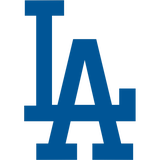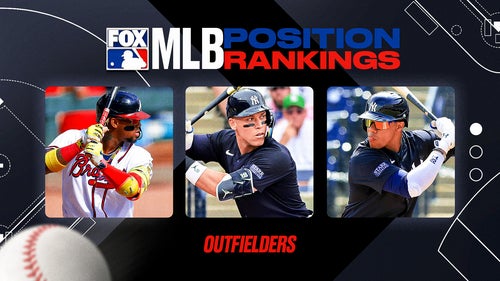
APNewsBreak: Dodgers hit with $36.2M tax, Yanks with $15.7M
NEW YORK (AP) The Los Angeles Dodgers will pay baseball's highest luxury tax for the fourth straight year and the New York Yankees owe a penalty for a 15th consecutive season, streaks that could end as the sport's biggest spenders slash payroll for 2018.
The Dodgers owe $36.2 million, according to final figures compiled by the commissioner's office and obtained by The Associated Press. That raises their five-year tax total to nearly $150 million.
New York was second at $15.7 million, its lowest amount since 2011 but a figure that increased its total since the tax began to $341 million. San Francisco was next at $4.1 million, followed by Detroit at almost $3.7 million and Washington - which is paying tax for the first time - at just under $1.45 million.
The Dodgers and Yankees vow to get below next year's tax threshold of $197 million. That would reset their base tax rate from 50 percent to 20 percent going into the 2018-19 offseason, when Bryce Harper, Manny Machado and possibly Clayton Kershaw head a potentially illustrious free-agent class.
''We know going in that the structure we have in place allows for flexibility for teams to make decisions in the near term and for the longer term,'' players' association head Tony Clark said Tuesday. ''It is something obviously we watch, something that we're very cognizant of.''
Los Angeles' 2018 payroll for tax purposes currently projects to about $181 million and New York's to $177 million.
''My goal is still to be under the threshold,'' Yankees owner Hal Steinbrenner said last week after the team acquired high-priced slugger Giancarlo Stanton from Miami in a trade. ''Even with him added. We're comfortably under the threshold with some more money to spend, whenever we deem we want to spend it.''
Additional surtaxes began this season: 12 percent on amounts $20 million to $40 million above the threshold and 45 percent on amounts over $40 million for repeat offenders. But there were special transition rules between the old and new labor contracts.
Starting next year, teams more than $40 million above the threshold would have their top amateur draft pick dropped back 10 slots - with the top six overall selections protected and the extra penalty applied to the second-highest pick of those teams.
Los Angeles lowered its regular payroll to $243.7 million from a record $291.1 million in 2015 and $254.9 million last year. For purposes of the tax, which uses average annual values and includes benefits, the Dodgers' payroll was nearly $253.6 million, an increase of $2 million.
The Yankees' regular payroll was second at $208.4 million, down from $224.5 million last year and their lowest since 2006. Detroit was third at $190.8 million after falling $8.5 million and Boston fourth at $189.2 million after falling $11.3 million. San Francisco was fifth at $186.6 million, followed by the Chicago Cubs at $186.2 million.
World Series champion Houston was 18th at $134.1 million, an increase of $30 million.
Other teams with big boosts included Washington (up $23 million to $179 million), Texas (up $20 million to $174.7 million), Colorado (up nearly $33 million to $142.7 million) and Cleveland (up nearly $36 million to $136.1 million).
The Chicago White Sox dropped by almost $37 million to $87.8 million and San Diego by nearly $26 million to $71.3 million.
Milwaukee, at $68.2 million, was last for the second straight season. Just above were the Padres and Oakland at $76.3 million.
''We're watching. We'll continue to watch,'' Clark said. ''We have some concerns in some areas, which I won't go into.''
Spending on 40-man major league payrolls totaled $4.24 billion, an increase of $164 million, down from a $186 million increase last year. Regular payrolls include 2017 salaries, earned bonuses and prorated shares of signing bonuses.
Luxury tax checks to the commissioner's office are due by Jan. 21. The first $13 million of tax money is used to fund player benefits and starting this year 50 percent of the remainder will be used to fund player Individual Retirement Accounts. The other 50 percent of the remainder will be given to teams not over the tax threshold.
---
More AP baseball: https://apnews.com/tag/MLBbaseball








